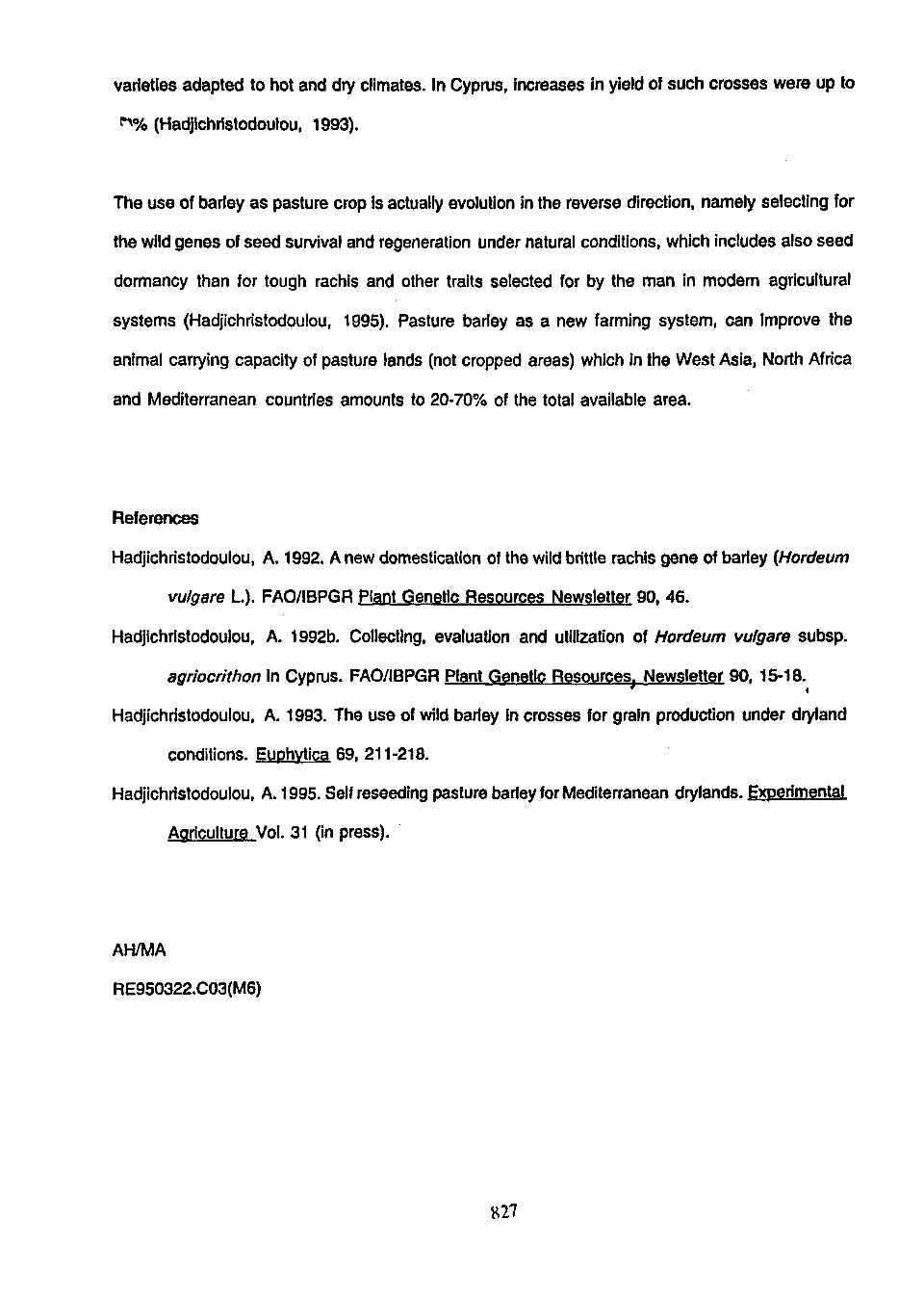

varieties adapted to hot and dry climates. InCyprus, increases in yield of such crosses were up to
(Hadjichristodoulou, 1993).
The use of barley as pasture crop is actually evolution inthe reverse direction, namely selecting for
the wildgenes of seed survival and regeneration under natural conditions, which includes also seed
dormancy than for tough rachis and other traits selected for by the man in modem agricultural
systems (Hadjichristodoulou, 1995). Pasture barley as a new farming system, can improve the
animal carrying capacity of pasture lands (not cropped areas) which in the West Asia, North Africa
and Mediterranean countries amounts to 20-70% of the total available area.
References
Hadjichristodoulou, A. 1992. Anew domestication of the wildbrittle rachis gene of barley
(Hordeum
vulgare
L). FAO/IBPGR Plant Genetic Resources Newsletter 90, 46.
Hadjichristodoulou, A. 1992b. Collecting, evaluation and utilization of
Hordeum vulgare
subsp.
agriocrithon
in Cyprus. FAO/IBPGR Plant Genetic Resourcesj Newsletter 90, 15-18.
Hadjichristodoulou, A. 1993. The use of wild barley in crosses for grain production under dryland
conditions. Euphvtica 69. 211-218.
Hadjichristodoulou, A. 1995. Self reseeding pasture barleyforMediterranean drylands. Experimental
Agriculture Vol. 31 (in press).
AH/MA
RE950322.C03(M6)
H27
Научная электронная библиотека ЦНСХБ









